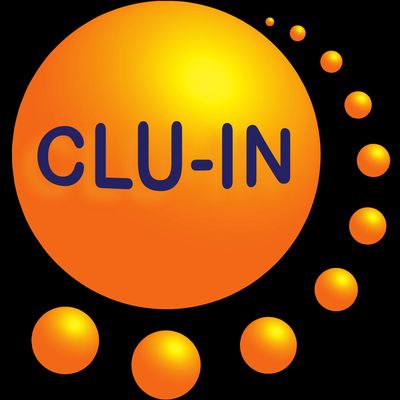Since 1998, The Contaminated Site Clean-Up Information (CLU-IN) website has presented Internet Seminars covering a wide variety of technical topics related to hazardous waste characterization, monitoring, and remediation. For select seminar topics offered since 2012, we are making complete video recordings available through our archives. This feed contains all video seminars archived in the last 12 months. For a complete list of seminars archived since 2000, please visit http://www.clu-in.org/live/archive/. Our Rehabilitation Act Notice for reasonable accommodation is available at http://www.clu-in.org/training/accommodation.cfm. CLU-IN was developed by the U.S. Environmental Protection Agency (EPA) but is intended as a forum for all waste remediation stakeholders. For more information and to view upcoming live offerings, please visit http://www.clu-in.org/live/. For a complete list of RSS feeds available on CLU-IN, please visit http://www.clu-in.org/rss/about/.
http://www.clu-in.org/live/archive
Risk Communication Strategies to Reduce Exposures and Improve Health: Session II - Combatting Misinformation and Mistrust When Communicating Health Risks (Oct 8, 2021)
The NIEHS Superfund Research Program (SRP) is hosting a Risk e-Learning webinar series focused on strategies to communicate potential environmental health risks to reduce exposures and improve health. The four-part series will showcase effective risk communication strategies and how they have been tailored to the needs of diverse communities. Presentations will also highlight first-hand experiences designing risk communication messages and campaigns, evaluating impact, and adapting communication strategies for different populations. The webinar series builds on an SRP workshop held in June 2021. In the second session, presenters will describe research on designing and framing communication messages so that they are sensitive to the cultural and social context of communities. These efforts aim to combat misinformation and mistrust when communicating health and environmental risks. Wen-Ying Sylvia Chou, Ph.D., of the National Cancer Institute, will focus on the spread of misinformation online as a longstanding public health challenge. In this talk, Dr. Chou will outline current knowledge on health misinformation across various domains, contextualize misinformation in the online information ecosystem, and share some mitigation approaches that have been implemented. Jim Dearing, Ph.D., of Michigan State University SRP Center, will outline how the framing of a message can elicit different reactions from those who see, hear, or read the message. For highly politicized issues, he suggests a multisolving innovation strategy. This presentation will describe this approach to message framing with reference to community-level practices, programs, and technologies that promise both human health and carbon mitigation outcomes. Karletta Chief, Ph.D., of the University of Arizona SRP Center, will share the experiences of building community and university partnerships to quickly develop and implement a community-based risk assessment in the wake of environmental disasters. This talk will highlight the results from working with Diné community partners to design and implement a culturally appropriate study to prevent potentially harmful exposures and to communicate risks effectively. To view this archive online or download the slides associated with this seminar, please visit http://www.clu-in.org/conf/tio/SRPREIH2_100821/
